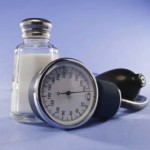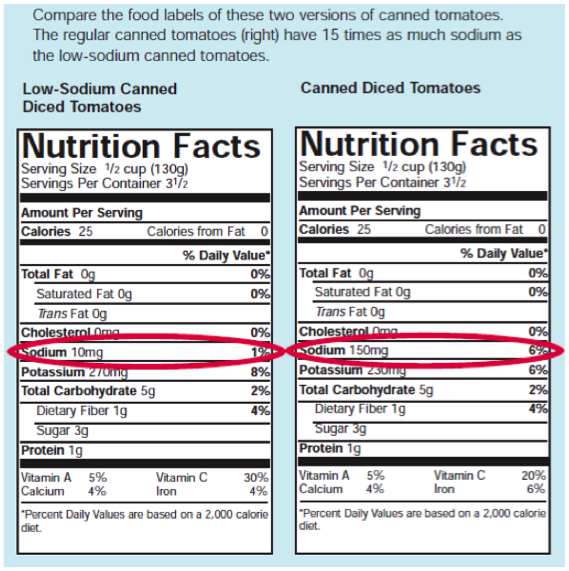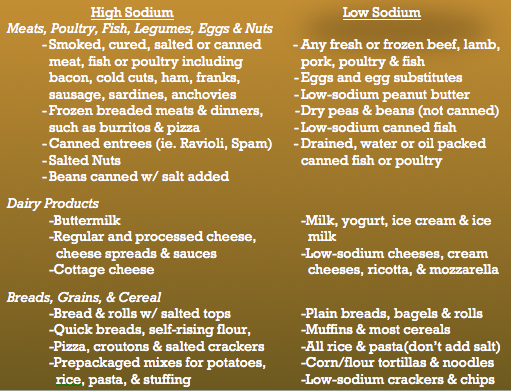Low Sodium Diet
 Why is a Low Sodium Diet Important?
Why is a Low Sodium Diet Important?
A low-sodium (salt) diet may help lower blood pressure and prevent build-up of extra water in your body. This diet can help those with high blood pressure, heart failure, kidney disease, or other conditions in which swelling or fluid retention can occur. Even if you take a pill for blood pressure or a water pill (diuretic) to remove fluid, it is still important to have less salt in your diet. Our recommendation is to limit your daily sodium intake to 1,500mg (ie. 300-400 per meal)
Low Sodium Dieting
The typical American diet is very high in sodium. Even if you do not add salt while cooking or do not use the salt shaker at the table, you are probably eating too much sodium. That is because we eat processed foods, like frozen dinners, fast foods, boxed noodle rice dishes, canned soups, and canned vegetables. Most processed foods are high in sodium, so avoid those as much as possible.
It may take some time to adjust to a low sodium diet, but it is worth the effort. A low-sodium diet can help you feel better and may even keep you out of the hospital. To help you, here are a list of foods and their sodium contents.

General Guidelines For Cutting
Down on Salt
Eliminate salty foods from your diet and reduce the amount of salt used in cooking. Sea salt is no better than regular salt. Choose low sodium foods. Many salt-free or reduced salt products are available. When reading food labels, low sodium is defeine as 140mg of sodium per serving, 400mg or more is high. Be creative and season your foods with spices, herbs, lemon, garlic, ginger, vinegar and pepper.
For more info, click here.
Back to top